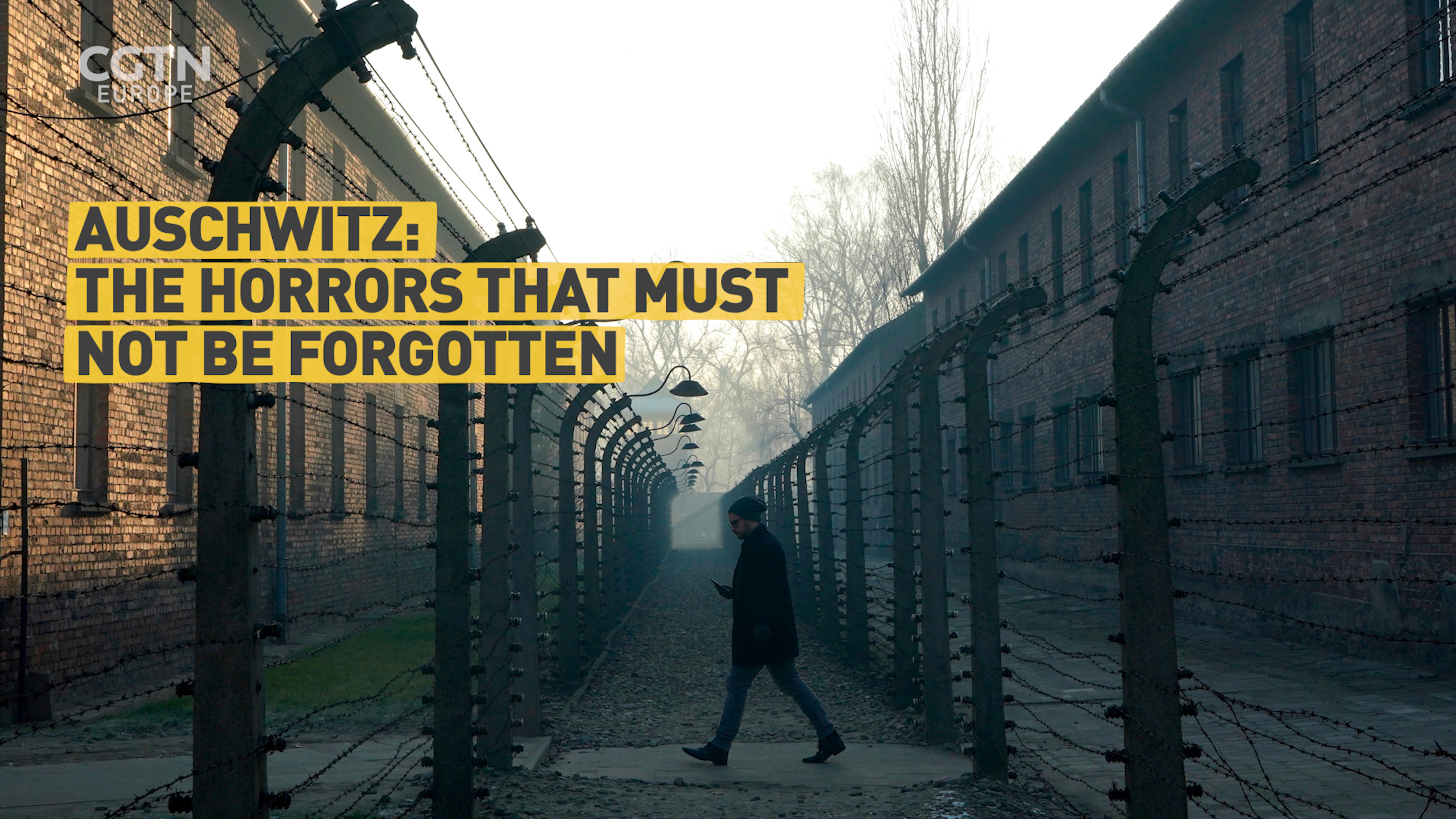02:10

On Monday, Poland and many other countries around the world will mark the 75th anniversary of the liberation of the Auschwitz concentration camp by the Soviet forces.
More than a million people were killed there by the Nazis during World War II. A vast majority were Jews deported from all over Europe.
The mechanism behind the industrialized killing of people can be seen today in Auschwitz. Over the years, tens of millions of visitors have come here, with two million last year alone. They walk the same roads as hundreds of thousands of those who perished in what was a Nazi death camp.

More than a million people were killed in the Nazi Auschwitz concentration camp. (Credit: Pablo Gonzalez/AFP)
More than a million people were killed in the Nazi Auschwitz concentration camp. (Credit: Pablo Gonzalez/AFP)
It's eerily silent in the streets of the Auschwitz Camp and in the barracks that visitors are entering. Inside them are rooms with barely any space for prisoners. On average, when it was time for sleep, they had only 30cm of space each.
Outside, the camp was surrounded by watchtowers and high fences. On one side were barracks for the prisoners. On the other was the last stop for almost all of them - the gas chamber.
It was beneath a flat roof, which was the view from the rooms of the hospital for SS officers. They recuperated here while looking at their colleagues pouring Zyklon-B poison through the openings in the gas chamber roof.
It took 20 minutes for the several hundred people packed inside to die. Then, their bodies were moved to the next room, where they were incinerated.

The bodies of the dead were moved from the gas chambers and incinerated. (Credit: Janek Skarzynski/AFP)
The bodies of the dead were moved from the gas chambers and incinerated. (Credit: Janek Skarzynski/AFP)
Few of the remaining survivors, who all push over 90 years old, still remember the horrors of Auschwitz.
CGTN met Janina Iwanska, who was 15 years old when she was sent to Auschwitz because she was helping Polish rebels against Nazis.
"When we just left the train wagons, we could smell the crematoriums and burned bodies. I knew this smell already because I used to visit my grandmother, who lived close to the Treblinka concentration camp. I knew what this smell is and what is happening," Iwanska recounted teary eyed.
Seventy-five years after she survived its horrors, she's afraid the world is again heading in a dangerous direction.
"I think that at the moment the situation not only in Poland but in Europe and the entire world is very dangerous, very similar to the one I experienced as a child and which resulted in war, camps, and murder of millions of civilians," Iwanska said.

Auschwitz survivor Janina Iwanska was only 15 when she was sent to the concentration camp for helping Polish rebels against the Nazis.
Auschwitz survivor Janina Iwanska was only 15 when she was sent to the concentration camp for helping Polish rebels against the Nazis.
Just this past week, Poland's president boycotted a Holocaust commemoration in Israel when he was not allowed to speak at the event, even though other world leaders were offered speaking roles.
The chief rabbi of Poland, Michael Schudrich, commented on the politicization of the Auschwitz events.
"It is forbidden to use Auschwitz for political purposes. Full stop. You want to make political about everything else - your concern, your responsibility. One may never use Auschwitz for politics," Shudrich said.
On Monday, the commemoration will be held in Auschwitz, and the Polish president will speak at the event.